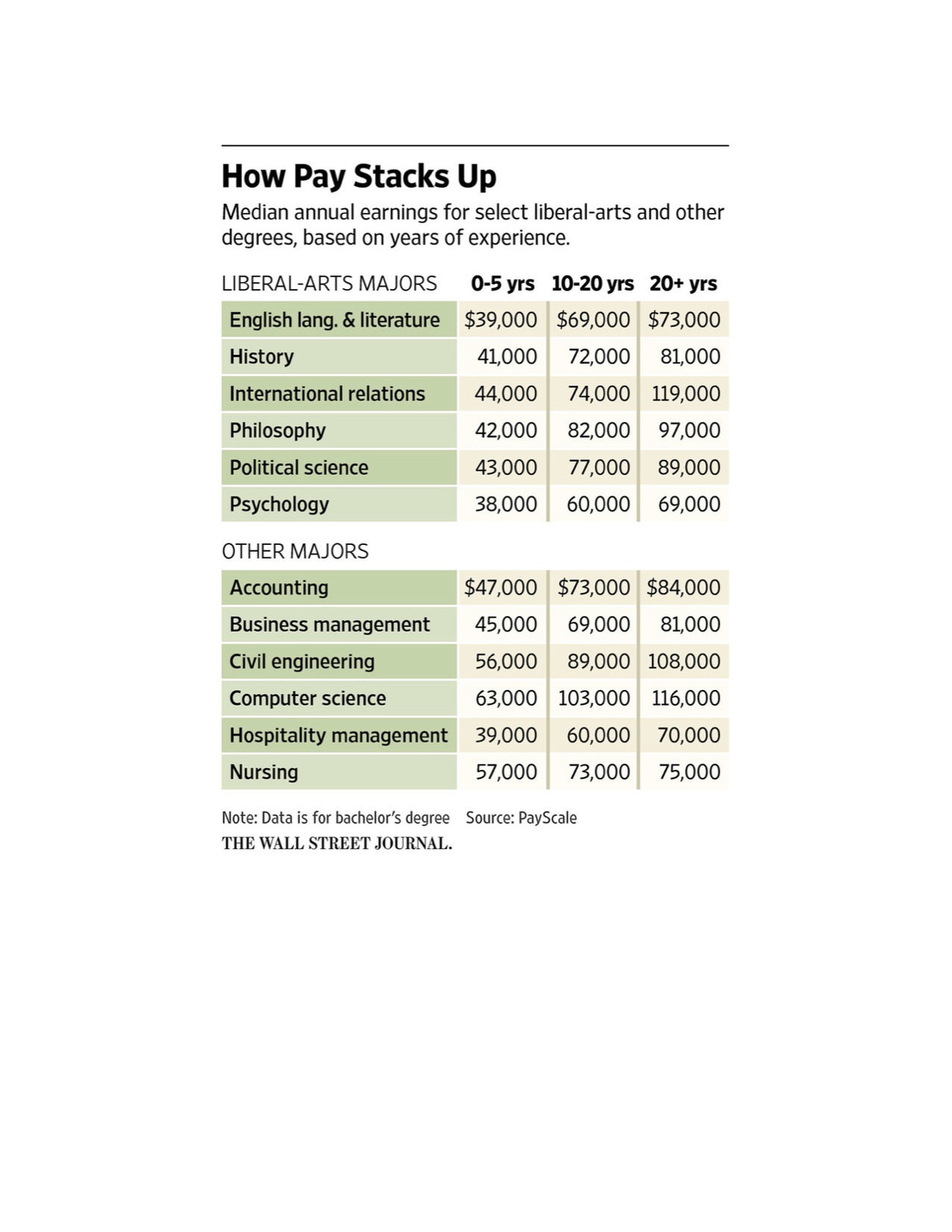Vivek Wadhwa is a Distinguished Fellow at Harvard Law School and Carnegie Mellon University’s College of Engineering at Silicon Valley. He researches ![]() exponentially advancing technologies that are soon going to change our world. And yet he has moved away from recommending STEM as the path to successful careers.
exponentially advancing technologies that are soon going to change our world. And yet he has moved away from recommending STEM as the path to successful careers.
In a Washington Post column entitled Why the liberal arts and humanities are as important as engineering he writes:
Earlier in my academic career, I used to advise students to focus on science and engineering, believing that they were a prerequisite for success in business. I had largely agreed with Bill Gates’s assertions that America needed to spend its limited education budgets on these disciplines, because they produced the most jobs, rather than the liberal arts and humanities.
This was in a different era of technology and well before I learned what makes the technology industry tick. … We learned that though a degree made a big difference in the success of an entrepreneur, the field it was in and the school that it was from were not significant factors.
… Logitech CEO Bracken Darrell, who majored in English, also emphasized this. I recently asked him how he turned his company around and caused its stock price to increase by an astonishing 450 percent over five years. He said that it was through relentlessly focusing on design in every product the company built; that engineering is important but what makes a technology product most successful is its design. The key to good design is a combination of empathy and knowledge of the arts and humanities. Musicians and artists inherently have the greatest sense of creativity. You can teach artists how to use software and graphics tools; turning engineers into artists is hard.
An engineering degree is very valuable, but the sense of empathy that comes from music, arts, literature and psychology provides a big advantage in design. A history major who has studied the Enlightenment or the rise and fall of the Roman Empire gains an insight into the human elements of technology and the importance of its usability. A psychologist is more likely to know how to motivate people and to understand what users want than is an engineer who has only worked in the technology trenches. A musician or artist is king in a world in which you can 3D-print anything that you can imagine.
This, if course is consistent with Google’s findings that STEM skills were the least important skills of their most successful employees. And George Anders findings that Silicon Valley is now hiring more liberal arts majors, than engineers.
Despite all this evidence far too many policymakers and business leaders continue to sent the message that if you don’t get a degree in a STEM field you are better off not getting a four-year degree. In many cases explicitly arguing that the liberal arts, humanities, arts and music have little or no economic value. What nonsense!
Anders in new book, You Can Do Anything: The Surprising Power of a “Useless” Liberal Arts Education, tells the story of how liberal arts majors––no matter what the conventional wisdom––are putting together successful forty-year careers. And the data that shows this is true. The table below comes from a Wall Street Journal column he wrote.
It’s far past time for political and business leaders to stop trying to steer others’ kids into preparing for occupations they think are in-demand jobs today and tomorrow. Instead they should be following Wadhwa’s advice on how to guide kids for career success:
When parents ask me now what careers their children should pursue and whether it is best to steer them into science, engineering and technology fields, I tell them that it is best to let them make their own choices. They shouldn’t, I tell them, do what our parents did, telling us what to study and causing us to treat education as a chore; instead, they should encourage their children to pursue their passions and to love learning.








